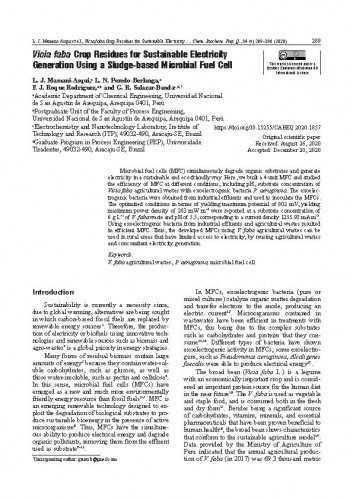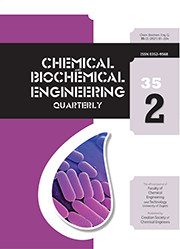Microbial fuel cells (MFC) simultaneously degrade organic substrates and generate electricity in a sustainable and eco-friendly way. Here, we built a 4-unit MFC and studied the efficiency of MFC at different conditions, including pH, substrate concentration of Vicia faba agricultural wastes with exoelectrogenic bacteria P. aeruginosa. The exoelectrogenic bacteria were obtained from industrial effluents and used to inoculate the MFCs. The optimized conditions in terms of yielding maximum potential of 802 mV, yielding maximum power density of 283 mW mb2 were reported at a substrate concentration of 6 g Lb1 of V. faba waste and pH of 5.5, corresponding to a current density 1255.93 mA mb2. Using exoelectrogenic bacteria from industrial effluents and agricultural wastes resulted in efficient MFC. Thus, the developed MFCs using V. faba agricultural wastes can be used in rural areas that have limited access to electricity, by reusing agricultural wastes and concomitant electricity generation.
Sažetak
Dio od

 Chemical & biochemical engineering quarterly : the international publication of "Kemija u industriji" : the official journal of Croatian Society of Chemical Engineers, Faculty of Chemical Engineering and Technology University of Zagreb, Slovenian Chemical Society, and Austrian Association of Bioprocess Technology : 34,4(2020) / co-editors-in-chief M. Rogošić, B. Zelić.
Chemical & biochemical engineering quarterly : the international publication of "Kemija u industriji" : the official journal of Croatian Society of Chemical Engineers, Faculty of Chemical Engineering and Technology University of Zagreb, Slovenian Chemical Society, and Austrian Association of Bioprocess Technology : 34,4(2020) / co-editors-in-chief M. Rogošić, B. Zelić.